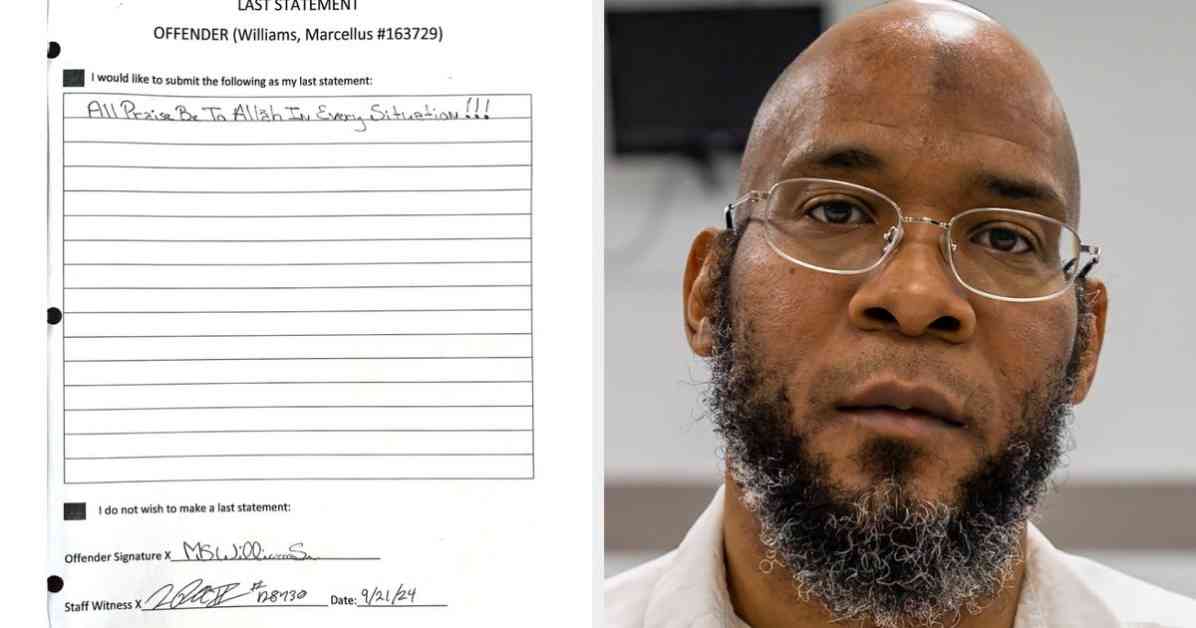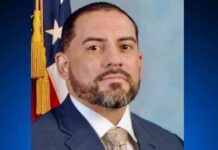Marcellus Williams’ Last Words Echo Faith and Resilience
Marcellus “Khaliifah” Williams, a 55-year-old man who spent years fighting to prove his innocence, was executed in Missouri on Tuesday. Despite his efforts and the support of many who believed in his innocence, including prosecutors, defense attorneys, and the victim’s family, Williams’ life was not spared. In his final statement filed with the state corrections department, Williams expressed his faith by stating, “All praise be to Allah in every situation!!!”
Tricia Rojo Bushnell, Williams’ attorney, described him as a kind and thoughtful man who had embraced his role as an Imam in his final years. She highlighted his talent for poetry and his dedication to his family and community. Williams found solace in his faith, using it to navigate the challenges of wrongful conviction and impending execution. His poetry, which he shared with the Innocence Project, often focused on supporting and remembering those who were incarcerated alongside him.
Controversy Surrounding Williams’ Conviction
Williams was convicted in 2001 for the murder of Felicia Gayle, a reporter for the St. Louis Post-Dispatch. Despite a lack of forensic evidence linking him to the crime, a predominantly white jury sentenced him to death based on questionable witness testimonies. The Midwest Innocence Project raised concerns about the fairness of his trial, pointing out inconsistencies in the evidence presented.
The St. Louis County Prosecutor’s Office, which handled the case, admitted to mishandling, contaminating, and destroying crucial evidence. Despite efforts to negotiate a life sentence for Williams in exchange for taking him off death row, the state’s attorney general intervened, blocking the agreement. Prosecutors and the defense jointly filed a brief acknowledging the lack of forensic evidence tying Williams to Gayle’s murder.
Circuit Judge Bruce F. Hilton denied a motion to vacate Williams’ conviction, stating that there was insufficient evidence to prove his innocence. This decision disregarded the concerns raised by both his defense team and the prosecutors who recognized the flaws in the original trial. The denial of clemency by Missouri Governor Mike Parson further sealed Williams’ fate.
Calls for Justice and Reflection
In the aftermath of Williams’ execution, voices of dissent emerged from various quarters, including Gayle’s family, the jurors who sentenced him, and over a million concerned citizens and faith leaders. They questioned the rush to execute a man whose guilt was shrouded in doubt and whose life could have been spared at multiple junctures in the legal process.
Prosecuting Attorney Wesley Bell of St. Louis County lamented the outcome, emphasizing the need for absolute certainty in cases involving the death penalty. He echoed the sentiment that the execution of an innocent person undermines the principles of justice and humanity. The federal public defender’s office, which had worked on Williams’ case, expressed their profound grief at his loss, underscoring his unwavering faith and regret over the injustices he faced.
Despite the controversy surrounding his case and the ultimate tragedy of his execution, Marcellus Williams’ legacy endures through his faith, resilience, and commitment to seeking justice. His final words, steeped in gratitude and devotion, serve as a poignant reminder of the strength he found in his beliefs in the face of adversity.























